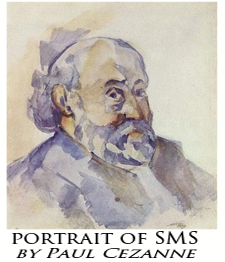
Who paid for the WSU administrators’ case? I assume it was the State of Washington. This seems to me to be another example of legal thuggery.
Why should the AG, elected to represent all the citizens of the sate, default to defending administrators vs. faculty if we have shared governance?
Ninth Circuit Reaffirms Free-Speech Rights for Professors
Court Implicitly Rejects WSU’s Argument that “Professional Speech” Does Not Deserve Protection
The Ninth Circuit U.S. Court of Appeals this week denied a second appeal from four Washington State University administrators who wanted the authority to discipline professors who offer alternative plans for restructuring an academic program.
In November, WSU asked the full court to rehear the case after a three-judge panel, led by William A. Fletcher, ruled Sept. 4, 2013, that a 7-Step Plan for improving the Edward R. Murrow School (now a College) of Communication, created in 2007 by then-tenured-associate professor David Demers, deserved First Amendment protection.
In its brief for an en banc rehearing, WSU argued that Demers’ plan was “professional speech” – not speech related to scholarship or teaching – and, therefore, did not deserve constitutional protection.
However, a three-judge panel of the appeals court, in its revised opinion issued Jan. 29, ignored the “professional speech” argument and reiterated that First Amendment protection should be extended to speech that is “related to scholarship and teaching” and deals with “matters of public concern.”
“It may in some cases be difficult to distinguish between what qualifies as speech ‘related to scholarship or teaching,'” lead judge Fletcher wrote in the revised opinion. ” … But this is not such a case. … The 7-Step Plan … was a proposal to implement a change at the Murrow School that, if implemented, would have substantially altered the nature of what was taught at the school, as well as the composition of the faculty that would teach it.”
The plan, which Demers submitted in January 2007, recommended, among other things, that the Murrow School remove one of its non-professional academic programs, give more power to untenured professional faculty, and seek accreditation for the remaining programs in journalism, public relations and advertising. Demers was serving on a School restructure committee when he developed the 7-Step Plan.
Demers filed a free-speech lawsuit in 2010 against then-Murrow Director Erica Austin and three other upper-level administrators, claiming he was punished in annual reviews for proposing the plan and for writing a controversial book.
“‘Related’ appears to be the operative word in the appeals court decision,” Demers said. “It doesn’t matter what role you are playing at a university – teacher, scholar, faculty senator, committee member, or pain-in-the-ass gadfly – if you, as a professor, are speaking on a matter of public concern that is related to teaching and/or research, you are protected from retaliation, according to the court.”
Demers added that “the decision helps preserve the century-old principle of shared governance, which distinguishes academia from virtually every other form of organization in modern society. Shared governance enhances the search for truth and knowledge.”
Since 2006, federal courts have denied free-speech protection seven out of eight times to faculty who, like Demers, spoke in their service-related roles.
The Demers v. Austin et al. case is the sole exception to the rule.
“I hope other federal courts will realize that truth in scholarship and teaching depends not just upon ideas, but on how universities are structured and maintained and how power is distributed.”
WSU has the right to appeal the case to the U.S. Supreme Court. It’s not clear whether it will do that. They would most certainly benefit from some legal advice regarding appeals, perhaps from the top appeals attorney Illinois has or someone similar.
A copy of the appeal court’s revised opinion is posted at www.acfcl.org